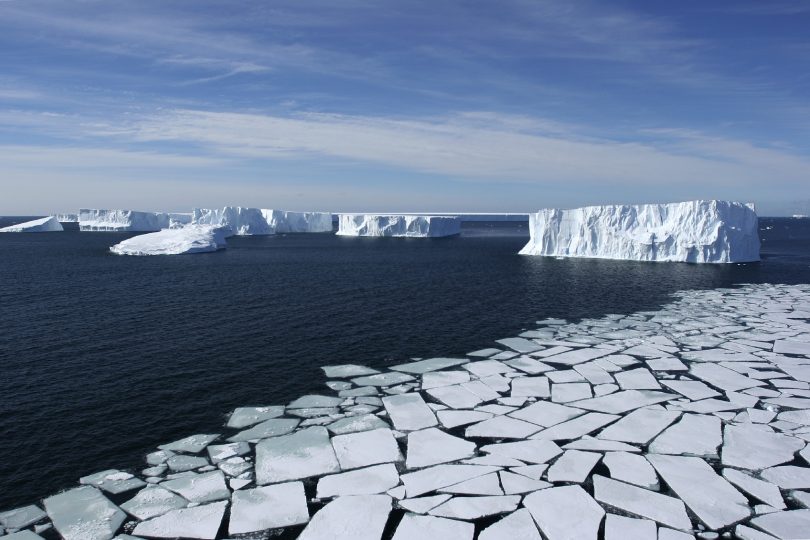
This book talk is part of the FT Weekend Oxford Literary Festival 2018, the Oxford Martin School is the Festival Ideas Partner
Doaa Abdel-Motaal says the thawing Antarctic offers previously inaccessible living space and marine and mineral resources. As a result she says it is imperative the world looks again at the Antarctic Treaty to avoid conflict in the region.
The continent, the only one without a native population, is regulated by the Antarctic Treaty and related agreements. Territorial claims on Antarctica are suspended and no mineral exploitation is allowed until 2048. Abdel-Motaal says these treaties will be inadequate in the face of countries competing for resources, and that global warming and a growth in climate refugees will also make Antarctica an attractive objective.
This is a ticketed event and the tickets are £7 - £12.50. For more information and to purchase a ticket please visit this website: https://www.ticketsource.co.uk/date/441950
About the speaker
Doaa Abdel-Motaal, is an agriculture, environment and climate expert with over twenty years of national and international experience. Her career started at the Egyptian Environmental Affairs Agency (EEAA) in the early 1990s, where she was responsible for working with experts from across different fields and national institutions to coordinate Egypt’s new environmental sector strategies, and to mobilise donor funding.
Her passion for environmental issues took her to the World Trade Organization (WTO) in Geneva where she was responsible for the Negotiating Group on Environment, and the settlement of certain commercial disputes with an agricultural and environmental angle. She subsequently became Advisor to the Director-General of the organisation, Pascal Lamy, on agriculture, environment and climate change and Deputy Chief of Staff.
Doaa’s career later took her to Rome where she became Chief of Staff of the International Fund for Agricultural Development (IFAD), contributing to the organisation’s 10th replenishment cycle, the management of its staff in Rome and country offices, and the oversight of the organisation’s project life-cycle. In Rome, her career extended to another United Nations agency, the World Food Programme (WFP), where she was tasked with assessing the operations and performance of the organisation.
In 2015, Doaa took a research sabbatical, travelling to Antarctica on a National Geographic Expedition and the Canadian Arctic on an Earthwatch Institute Climate Change Expedition. She subsequently published a book entitled ‘Antarctica; the Battle for the Seventh Continent‘, which foresees a battle for the conquest and exploitation of the resources of Antarctica.
Doaa holds a PhD in Development Studies from the International Development Institute of the University of Geneva, a Master of Philosophy degree in Environment and Development Studies from the University of Cambridge, a Master of Arts degree in Sociology from the American University in Cairo, and a Bachelor of Arts degree in Economics from Swarthmore College in Pennsylvania. She is a lecturer at various universities and business schools across Switzerland.
About the book
Antarctica The Battle for the Seventh Continent: The thawing Antarctic continent offers living space and marine and mineral resources that were previously inaccessible. This book discusses how revisiting the Antarctic Treaty System and dividing up the continent preemptively could spare the world serious conflict.
- Argues that the Antarctic Treaty, which was opened for signature in 1959, needs to be reconsidered since pressure continues to build for the occupation of the continent and the exploitation of its living and non-living resources
- Suggests that international conflict over Antarctica is likely in the coming decades, particularly because the ban on mineral resources is up for revision in 2048
- Argues that policymakers need to draw lessons from the economic competition the world is now witnessing in the thawing Arctic Ocean